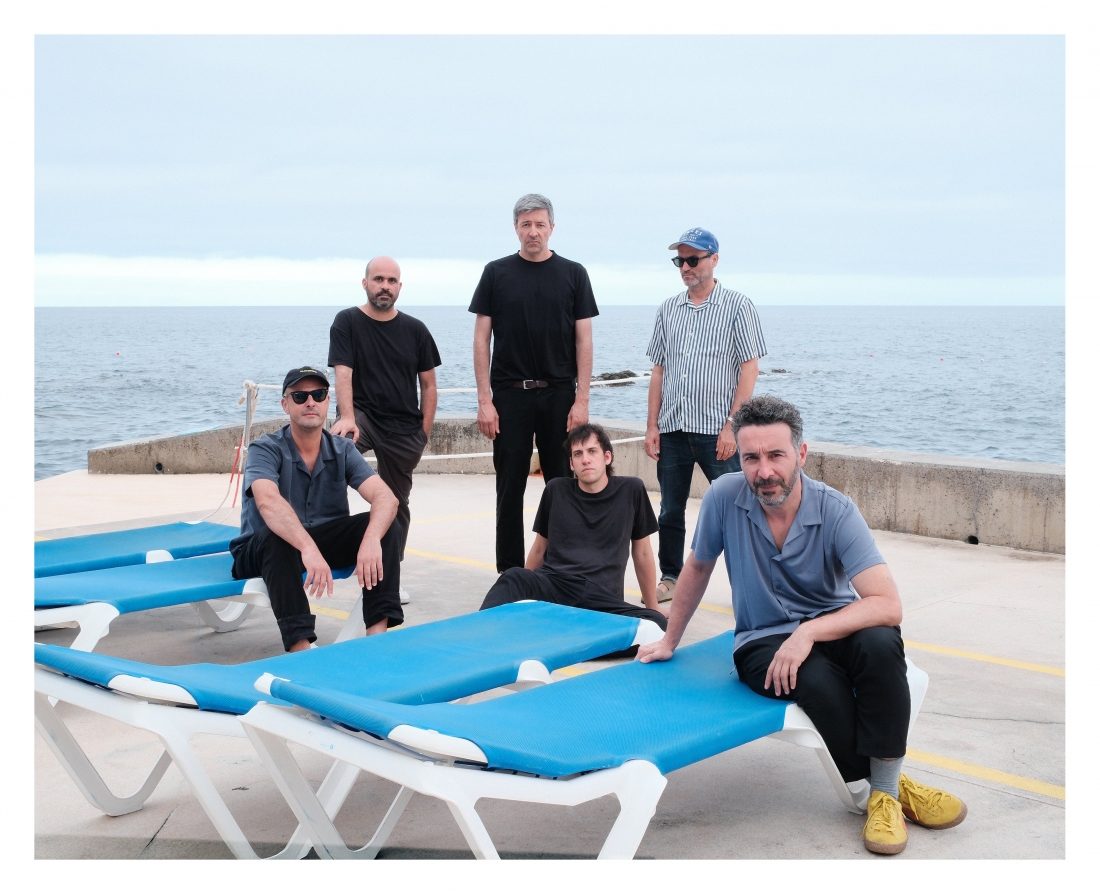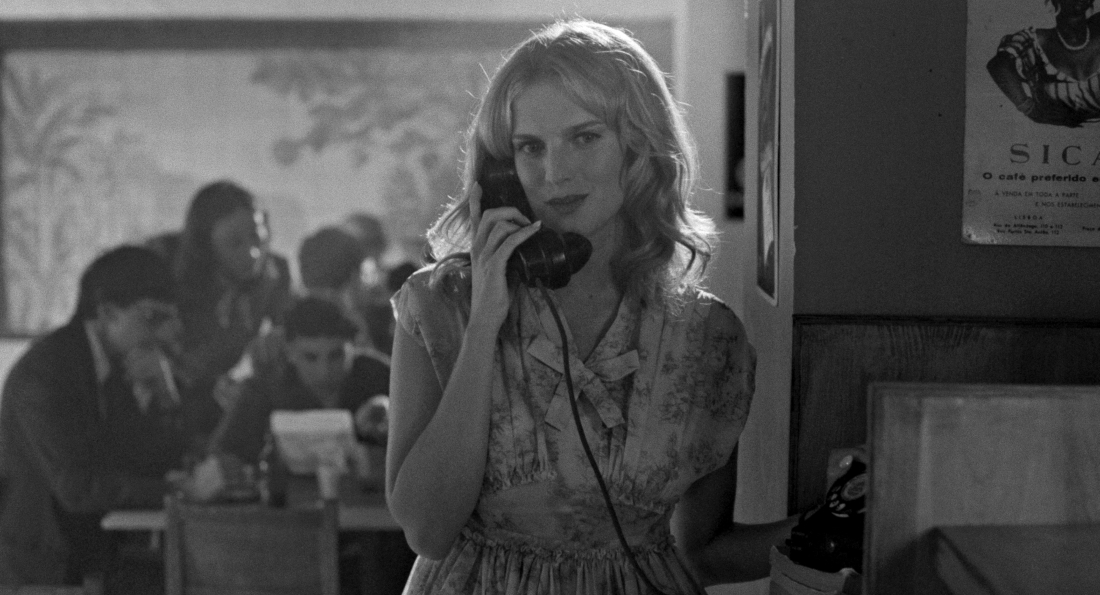Medeia Filmes
Jacques Tati Cycle
July
2025
Sinopse
Tati's party
Serge Daney wrote that each of Tati's films "marks a moment in the history of cinema" and, "since 1948, her six films are perhaps the ones that most profoundly punctuate our history". And also our history as spectators. It's a party and a "treat", to see them again in the cinema. To laugh with them and laugh heartily. ? Medeia Filmes
TATI'S PRAISE
Serge Daney
«Each of Tati's films marks at the same time: 1) a moment in Jacques Tati's work; 2) a moment in the history of French cinema; 3) a moment in the history of cinema. Since 1948, his six films are perhaps the ones that most profoundly punctuate our history. Tati is not only a rare filmmaker, author of few films, in fact all good; it is, alive, a point of reference. We all belong to a period of Tati's cinema: thus, I belong to the one that goes from Mon Oncle (1958: a year before the Nouvelle Vague) to Playtime (1967: a year before the events of May 68). Only Chaplin, from the point of view of sound, had this privilege: to be present even when he was not filming and, when he was filming, to be at the exact time, that is to say, a little ahead. Tati: first of all, a witness.
[…]
If we look in perspective at the six films made by Tati since 1948 (Jour de fête), we realize that they draw a line of flight that is, more or less, that of post-war French cinema. […] Who is still capable today of isolating, of pampering, the most everyday gestures (that of a coffee servant serving at the table), and, at the same time, of talking about the conception of Playtime as if it were a Mondrian canvas? Tati, of course. In addition, each of his films is a landmark testimony of "how things have been" in French cinema for thirty years now. If Jour de Fête bears witness to the euphoria of the post-war period, if Les Vacances and Mon Oncle to the apparent perenniality of a very French genre (social satire) within the framework of "quality cinema", Playtime, a great anticipatory film, constructs the Défense before the existence of the Défense, but also says that French cinema can no longer deal with the gigantism of French reality, that it is losing ground in it and that, like it, will degrade itself by opening up to internationalization, that is, to Americanization, which was already threatened by the postman de Jour de fête. In fact, the next two films are no longer entirely French (Trafic is a co-production, a very "European" film), nor entirely cinema (Parade is a Swedish television commission).
Evidently, Tati is not only the exemplary and desolate witness of the retreat of French cinema and the degradation of the craft (even if each of his films is like a documentary, an abyssal perspective of its conditions of possibility). He takes cinema in the conditions in which he finds it (technologically too) and curiously, he who has so often been accused of pastism, thinks only of innovating. We begin to know that Tati did not wait for anyone to rethink ex nihilo, from Jour de fête, the soundtrack of cinema, but we know that at the other end of the chain, almost thirty years later, Parade (scandalously ignored at the time of its premiere, by "Cahiers" as well) is an extraordinary exploitation in the field of video. In fact, the great theme of Tati's films, through the avatars of the production (or thanks to them), is what we now call the media with a certain ease. Not in the narrow sense of the "great means of information", but in the sense, closer to MacLuhan, of the "specialized extensions of man's mental or psychic faculties", of the extensions of his body in whole or in part. The media are already the quintessential story of Jour de fête, in which a postman, by dint of refining the transmission of the message, loses it (it is a child who inherits it, but diverted along the way by a circus, will not transmit it: a beautiful metaphor for the intransitivity of modern art), at the moment when the spectator has understood that the message is him, the postman, Tati. But the media are also the fireworks launched too soon and by mistake at the end of Vacances and that transformed Hulot into a luminous scarecrow, prefiguring the genius end of Parade in which everyone – whoever they are – becomes a luminous trail of a color in an electronic landscape (in an interview, Tati explains that she had replaced the jugglers' pins with brushes). And the media were also, in Mon Oncle, that very surprising parti-pris for the time of not making people laugh at the expense of the television programs bought by the couple, but of reducing that television to the spectacle of variations of cold and dull light illuminating the ridiculous garden. The list is endless, and a hundred other examples could be cited. The essential thing is that there is at all times and for anyone (in a kind of democratization of the comic that is the great bet of Tati's last three films and undoubtedly the recognition that we have all become, little by little, comic) a possibility of becoming a medium. From the Playtime doorman who, with the glass broken, becomes the whole door, to the maid terrified by the idea of passing under the electronic ray that opens the garage door where the gates have closed stupidly (Mon Oncle), there is for bodies (in a growing indifferentiation) the possibility (the threat?) of becoming in turn a limit, a threshold.'
in "Cahiers du Cinéma", nº303, September 1979
(From the Portuguese translation by Vera Futscher Pereira)
Info sobre horário e bilhetes
Thu
10.07
21:30
Fri
11.07
21:15
Sat
12.07
15:30
18:30
21:30
Sun
13.07
15:30
18:00
21:30
Mon
14.07
21:15
Tue
15.07
21:00
Wed
16.07
21:30
Aditional info
- Price
5.50€
Author's bio text
10/07 Thu
21h30 – Les Vacances de Monsieur Hulot (1953 – 1h20)
11/07 Fri
21h15 – Mon Oncle (1958 – 1h51| 6+)
12/07 Sat
15h30 – Les Vacances de Monsieur Hulot (1953 – 1h20)
18h30 – Playtime (1967 – 2h04 | 12+)
21h30 – Mon Oncle (1958 – 1h51| 6+)
13/07 Sun
15h30 – Jour de fête (1949 – 1h19 | 6+)
18h00 – Mon Oncle (1958 – 1h51| 6+)
21h30 – Trafic (1972 – 1h19)
14/07 Mon
21h15 – Les Vacances de Monsieur Hulot (1953 – 1h20)
15/07 Tue
21h00 - Parade (1974 – 1h29)
16/07 Wed
21h30 – Playtime (1967 – 2h04 | 12+)






